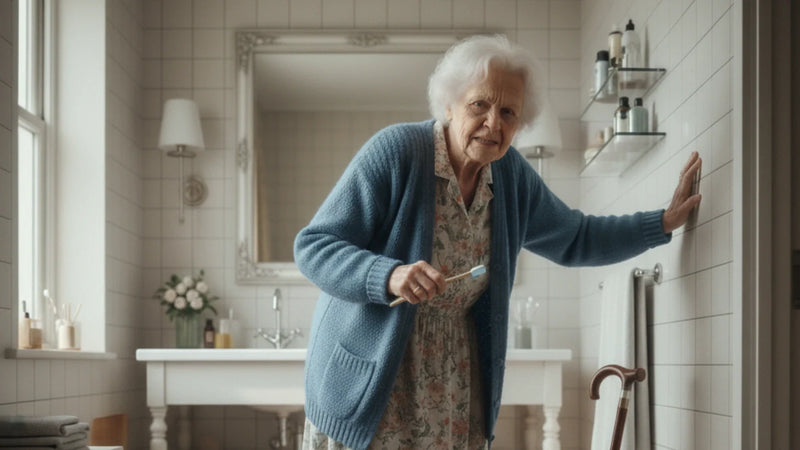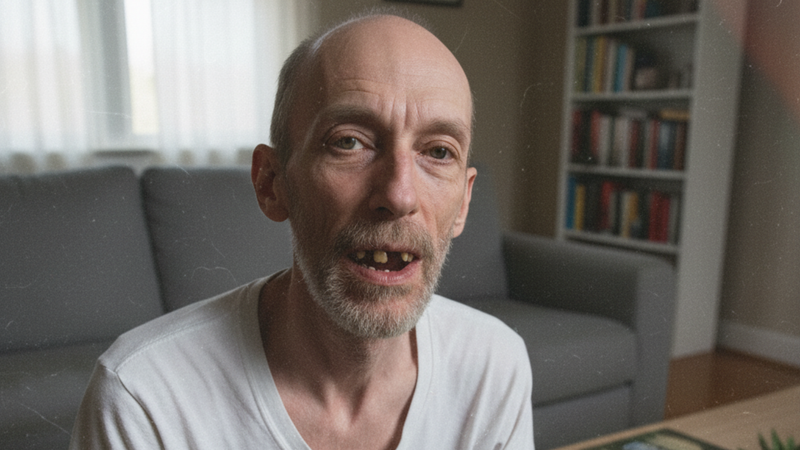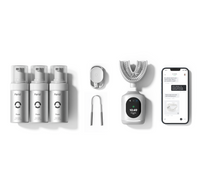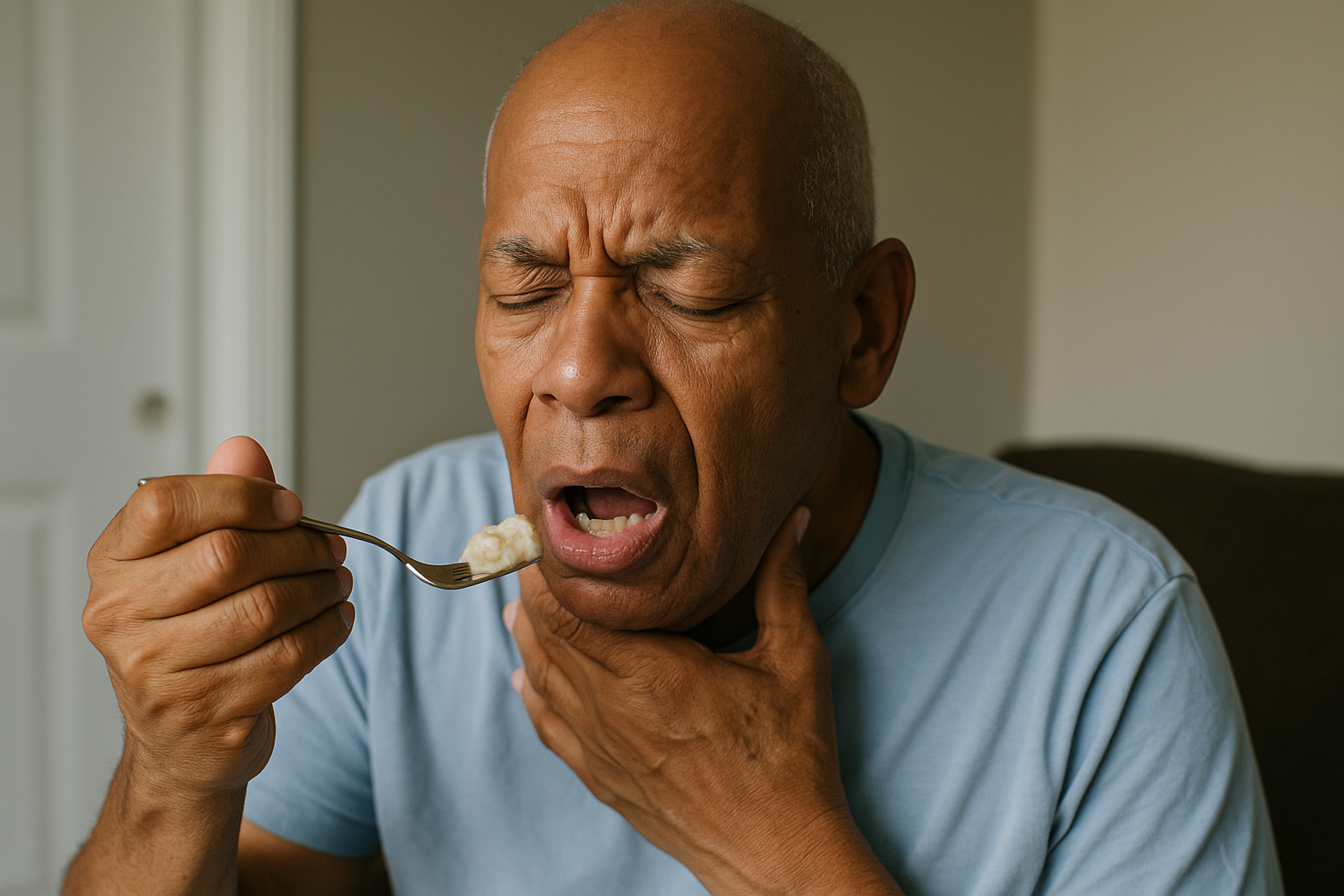
Dysphagia After Stroke: Protecting Your Oral Health
Essential Takeaways
- Dysphagia affects up to 60% of stroke survivors and significantly increases oral health risks. Simple strategies like antimicrobial rinses, frequent dental cleanings, and working with speech therapists can prevent serious complications including aspiration pneumonia.
Why It Matters
Understanding dysphagia is crucial for protecting health and wellbeing. Dysphagia, or difficulty swallowing, affects 30-60% of stroke survivors and creates serious oral health challenges. Normal swallowing naturally clears food particles and bacteria from the mouth, but when this process is impaired, debris accumulates and oral health can deteriorate rapidly. This breakdown in natural oral clearance significantly increases the risk of infections, including life-threatening aspiration pneumonia.
What Studies Show
Extensive research demonstrates that stroke survivors with dysphagia consistently experience higher dental plaque levels, increased oral discomfort, and greater colonization by harmful bacteria. Studies reveal these patients face elevated risks for both oral infections and systemic complications, particularly aspiration pneumonia, which occurs when oral bacteria enter the lungs.
Warning Signs Requiring Immediate Medical Attention:
- Coughing or choking during or after eating/drinking
- Frequent throat clearing after swallowing
- Voice changes after eating
- Recurring respiratory infections
- Food sticking in the throat
Evidence-Based Protection Strategies
Safe Swallowing Practices:
- Work with a speech-language pathologist to assess your swallowing safely
- Use thickened liquids only if prescribed by your healthcare team - the wrong consistency can be dangerous
- Take small bites and eat slowly in an upright position
Enhanced Oral Hygiene:
- Sip water between bites to rinse away food debris (if safe swallowing permits)
- Use antimicrobial rinses such as 0.12% chlorhexidine as recommended by your dentist
- Consider foam swabs or electric toothbrushes if standard brushing is difficult
- Remove dentures at night and clean thoroughly
Professional Care:
- Schedule dental cleanings and evaluations more frequently
- Inform your dental team about your dysphagia for modified treatment approaches
- Coordinate care between your stroke team, speech therapist, and dentist
Bottom Line
Whether you're a stroke survivor yourself or caring for someone who is, dysphagia is a common but manageable complication. With proper assessment by healthcare professionals and consistent implementation of targeted oral hygiene strategies, you can significantly reduce health risks while improving comfort and quality of life. The key is working with the care team to develop a personalized approach that addresses both swallowing safety and oral health protection. Remember, advocating for proper oral care - whether for yourself or a loved one - is an essential part of stroke recovery.
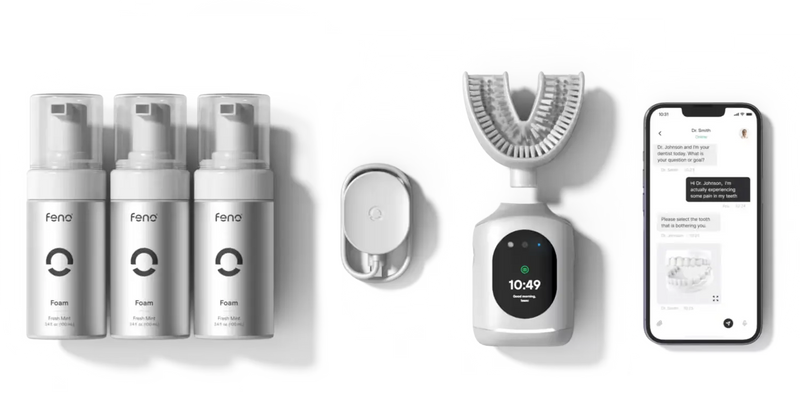
Feno Founders Edition Bundle
Advanced Oral Health in 20 Seconds with the Feno Smartbrush™
Get Yours Now!


